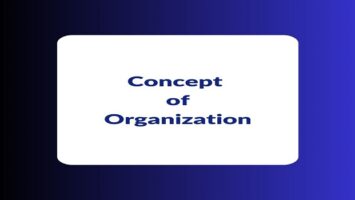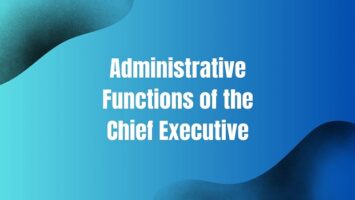Merit System:
The merit system of recruitment has been adopted by almost all the countries of the world. The merit system is, however, comparatively of recent origin. In India, it was introduced in 1854, under the influence of Mr. Macaulay. It was adopted in Britain a year later i.e. 1855. In the U.S.A., its beginning was made with the passing of the Pendleton Act, in 1833. The growth of democratic sentiments and the increasing complexity of administrative work provided ground to the demand for appointments on the basis of merit. Under this system, the vacant posts in government services are filled up by selecting the most suitable and qualified persons.
In other words, in contemporary times, the recruitment of personnel is done systematically and on the basis of merit. Merit is tested through open competitions. The aim of an open competition is to judge the merit, qualifications, and competence of the candidates. The system has been designated as the Merit System of Recruitment.
Before the merit system was adopted, there were three systems of recruitment in different countries of the world. These were:
- Sale of offices.
- Patronage system.
- Spoils system.
Sale of Offices- When the vacant posts were sold by public auction to the highest bidder which brought revenue to the state, it was called the Sale of Office System. This system prevailed in France before the French Revolution.
Patronage System- When the appointments were made out of personal favor or on political grounds, it was called the Patronage System. Family and kinship relations, personal loyalty, political links, favoritism, and nepotism were the factors and features of the Patronage System of recruitment. This system remained prevalent in Britain for a number of years. However, now it stands replaced by the Merit System.
Spoils System- When a new Party came to power, it used to dismiss all the government servants appointed by the earlier government. Then it used to fill up all the vacancies with its own supporters. This system was called the Spoils System. It was used in the USA for a number of years in the past. Today, the merit system has replaced it. However, along with it, the spoils system remains present though in a very limited way.
As such, in contemporary times, the Merit System has become a universally accepted method of recruitment. In most countries, the recruitment and appointment of civil servants are made on the basis of merit and ability. The question, therefore, arises as to who should test the merit and what method of testing and determining merit should be adopted. There is general agreement that recruitment by the merit principle should be entrusted to a central, impartial, non-political, and independent personnel agency like a public service commission or a civil service commission. The merit and ability of the candidate should be tested by such agencies by one or a combination of the following methods.
- Written Examination.
- Interview.
- Performance Test.
- Evaluation of Qualification.
- Physical Test.
- Psychological Test.
Through the use of any one of these tests or by a combination of two to three of such tests, an independent recruiting agency, like a civil service commission, can test the merit of the candidate.
In most countries and in most of cases, written tests followed by an interview are used for determining the merit of the candidates. In some countries like India, where the number of aspiring candidates is very large, a preliminary examination or an objective type written test in respect of General Studies and career subjects is held. Only those candidates who successfully compete in this test and are placed on the merit list are permitted to take the main written examination. Then, on the basis of the result of such an examination again, a merit list is prepared and the candidates who are on this list are called for personal interviews. Each candidate is awarded interview marks on the basis of his performance. Then a combined merit list (on the basis of the score in the written examination added to the score in the interview) of the final successful candidates is prepared and released. These then stand recruited to the civil service and after successfully completing the training, they get appointed.









Comments (No)